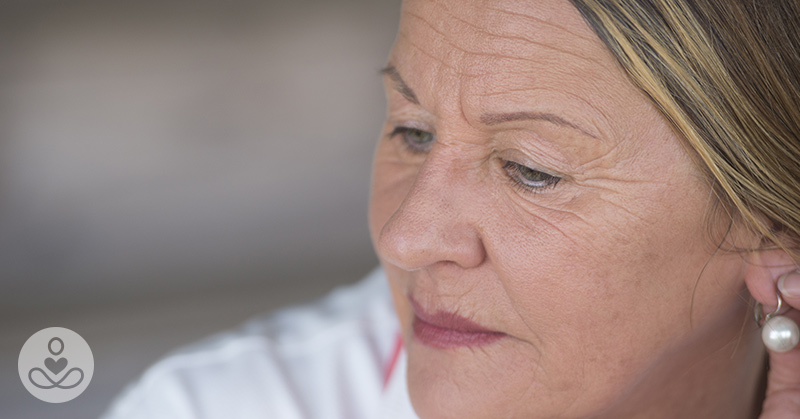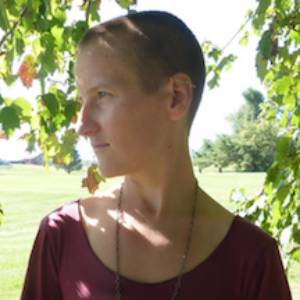Here’s a riddle for you: what do human females have in common with killer whales, beluga whales, narwhals, and short-finned pilot whales?
We all live for decades after our reproductive years end [1]. Menopause, defined as the end of the reproductive years, or, when a woman stops having her period and thus stops being fertile, happens for women at the average age of 51 [2].
Women, as we know, can healthily live for decades past the end of their menses. However, most other species are able to reproduce until they die. In fact, prolonged life after reproduction is a bit rare and something of a mystery, and scientists have fumbled to explain it [3].
So why do human females—along with some of our whale friends, among select other species—live so long after our fertility ends? The answer could lie in our evolution, and stop the stereotypes that come with the end of our reproductive years.
Read: Woman who was sick of thinning hair got an awesome makeover
Why Menopause Has Received So Much Negative Attention
You don’t get to be a 29-year-old woman without hearing from other women how horrific menopause is.
Now, don’t get me wrong. I have spoken to a couple people whose transition into menopause was blissfully simple. But there have been many others who have told me how terrible it is.
Some men have been quick to cast out postmenopausal females as “castrates”, one of the most notable being Robert Wilson, who used this term when describing women who ceased their menses in his 1966 book, Feminine Forever [4]. Later, it was revealed that Wilson had strong ties to a pharmaceutical company eager to market hormone replacement therapy.
For some, fertility is the mark of a woman, and to not be fertile anymore was to no longer be a woman. Another male author, psychiatrist David Reuben, pointed out in his 1969 book that the postmenopausal woman is “no longer a functional woman”.
Between women who have so many issues going through menopause and men who have something to say about it, one has to wonder why menopause even happens in the first place.
Read: This woman eats $10,000 of baby powder every year
The Hormonal Changes That Happen During Menopaus
While it seems rather difficult to argue that women are no longer women just because they don’t have periods, it’s important to know: what exactly happens during menopause?
Here’s the deal.
Girls are born with about one to two million eggs, which are all the eggs she will ever have in her lifetime, already in her womb. However, by the time she begins menstruating, there are only a few hundred thousand left, and only approximately 300 will be released for ovulation in her lifetime [6].
As she ages, the amount and quality of the eggs decrease, and as estrogen naturally declines in the body, so will her ability to conceive.
Changes in estrogen in the body during aging can make regular periods and conception impossible. The menopause transition can take years, as the body doesn’t stop producing estrogen overnight [7].
It’s a common misconception that women remain fertile until menopause—many women become unable to conceive sometime in their 40s, while the menopause transition may not be official until sometime in their 50s.
(As a side note, women aren’t alone. Men, too, undergo hormone changes as they age, with testosterone dropping up to 2 percent every year beginning in a man’s 30s. Low testosterone can leave men feeling fatigued, weak, and with more body fat [8]. This is often described as ‘andropause’ or ‘male menopause,’ however the use of the word menopause in this context is a misnomer, as female menopause is markedly different [9].)
So how could menopause be beneficial to our species?
Read: Woman lost 125 pounds by making small changes every week
Menopause Might Have Been Evolutionary, According to the Grandmother Hypothesis
There are several hypotheses for why human females live so long once their reproductive years are over. One of these fascinating hypotheses is the grandmother hypothesis.
The grandmother hypothesis claims that postmenopausal women maintained an integral role in hunter-gatherer societies. Research shows these women were master foragers and helped provide enough food for the entire tribe, including their children and their children’s children [9].
This simple but pivotal role allowed a postmenopausal female to contribute to the survival of her offspring. Research also suggests that postmenopausal women watched over their grandchildren, giving their daughters ample opportunity to collect food for their families [10].
However, the role of “grandmothers” in a hunter-gatherer society stretched beyond food collection and childcare—some provided agricultural labor, while others helped with domestic tasks. Regardless, research concludes that grandmothers were “almost universally beneficial” to a society, in a way that grandfathers weren’t, as they weren’t as invested in their children due to lack of certainty over their parental status [10].
Living closer to grandma enabled daughters to have more children, increasing their lineage and allowing grandma to care for the children and increase everyone’s chances of survival [11]. All this could just mean that my existence—and yours—was made possible by our collective grandmothers.
Read: What no one tells women about their 40s
Menopause Is Just as Much a Beginning as It Is an End
Susan P. Mattern argues in her book, The Slow Moon Climbs, that seeing menopause as an issue linked to problematic symptoms is a recent phenomenon, whereas, throughout most of human history, it was seen as an essential life transition [12].
With a third of human female’s lives spent in the postmenopausal years, it’s hard to argue that this transition is anything other than essential [13].
But does menopause need explaining? And is the destiny of women everywhere to care for children and perform domestic tasks until the day they die? Of course not.
The truth is that we all feel insecure as we age, and if changing hormones weren’t enough as teenagers, we get to experience a gradual hormone change as we age that, in many ways, will be more terrifying.
Whether these transitions serve as a reminder of our looming mortality, or just impact our daily lives from the more immediate changes they produce, menopause is far from the end—it’s a beginning that, as a 29-year-old woman, I can only imagine.
Read next: 5 things every woman should know about menopause
Sources
- https://www.nature.com/articles/s41598-018-31047-8
- https://obgyn.ucla.edu/menopause
- https://www.sciencedirect.com/science/article/pii/S0169534715001044
- https://www.npr.org/news/specials/hrt/
- https://www.reproductivefacts.org/news-and-publications/patient-fact-sheets-and-booklets/documents/fact-sheets-and-info-booklets/age-and-fertility/
- https://www.womens-health-concern.org/help-and-advice/factsheets/menopause/
- https://blog.uvahealth.com/2019/01/17/male-menopause/
- https://onlinelibrary.wiley.com/doi/full/10.1002/9781118924396.wbiea2162
- https://www.mayoclinic.org/healthy-lifestyle/mens-health/in-depth/male-menopause/art-20048056
- https://www.npr.org/sections/goatsandsoda/2019/02/07/692088371/living-near-your-grandmother-has-evolutionary-benefits
- https://press.princeton.edu/titles/13405.html
- https://onlinelibrary.wiley.com/doi/full/10.1002/9781118924396.wbiea2162
- https://www.theatlantic.com/magazine/archive/2019/10/the-secret-power-of-menopause/596662/

